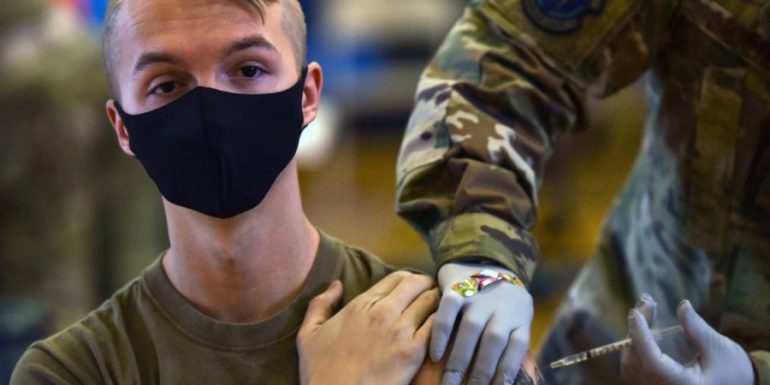It is called "super vaccine", "vaccine for every coronavirus", "miracle weapon" against the pandemic. The US Army's new experimental vaccine, SpFN, aims to protect against future pandemics, rendering booster doses obsolete.
Differences from the vaccines on the market today
The new "hypervaccine" is a protein, with principles similar to those of Novavax, which was approved by the European Medicines Agency in late December. SpFN is based on ferritin, which is linked to iron storage. The structure and composition of the new vaccine make it easily variable and modifiable. As with other coronavirus vaccines, it produces antibodies and activates so-called T-lymphocytes, preventing the virus from multiplying.
The new vaccine also contains - like the other vaccines - active adjuvants and in particular the substance ALFQ, which immediately puts the immune system on alert. Unlike coronavirus mRNA vaccines, SpFN does not cool to such sub-zero temperatures, making it easier to distribute.
Successful experiments on monkeys
The new vaccine was developed at the Walter Reed Army Institute of Research (WRAIR) and the first test vaccines were given to monkeys. The vaccine triggered the development of strong antibodies against four mutations in the coronavirus, Alpha, Beta, Gamma, Delta, and was also effective against the SARS-1 virus, which differs significantly from SARS-CoV-2. According to the first data, the vaccine seems to be effective against the Homicron mutation as well.
Following successful Rhesus monkey trials, Phase 1 clinical trials in humans follow. "The research aims to pave the way for a universal vaccine that will protect not only from the virus that exists now, but also from future ones," says Dr. Kevin Montgarard, one of the researchers at WRAIR. "So far everything is going as we hoped."
Coronavirus mutations make it necessary to invest in "new generation of vaccines"
According to the White House Medical Adviser Dr. Anthony Fauci, the development of such a vaccine could prevent the next pandemic, speaking before Congress about the need to invest in a "new generation of vaccines." "The growing incidence of coronaviruses in humans over the past two decades and the emergence of SARS-CoV-2 mutations, most recently Omicron, underscore the continuing need for next-generation vaccines that will offer broad protection against the disease," Montgarard said.
In fact, coronaviruses have been known since the 1960s and include many variants that infect rodents, birds and mammals. To date, few coronaviruses have appeared in humans. But when they attack human cells, they do so aggressively.
However, there are already objections to the new vaccine. As Carsten Waltz, secretary general of the German Immunology Association, told DW, the new vaccine "must first undergo clinical trials" and also "does not completely change the game" compared to known mRNA vaccines, which are easier to store and are cheaper. Nor does the new vaccine promise complete immunity. As with the mRNA vaccine, the new vaccine will need to be repeated.
Source: DW.com
